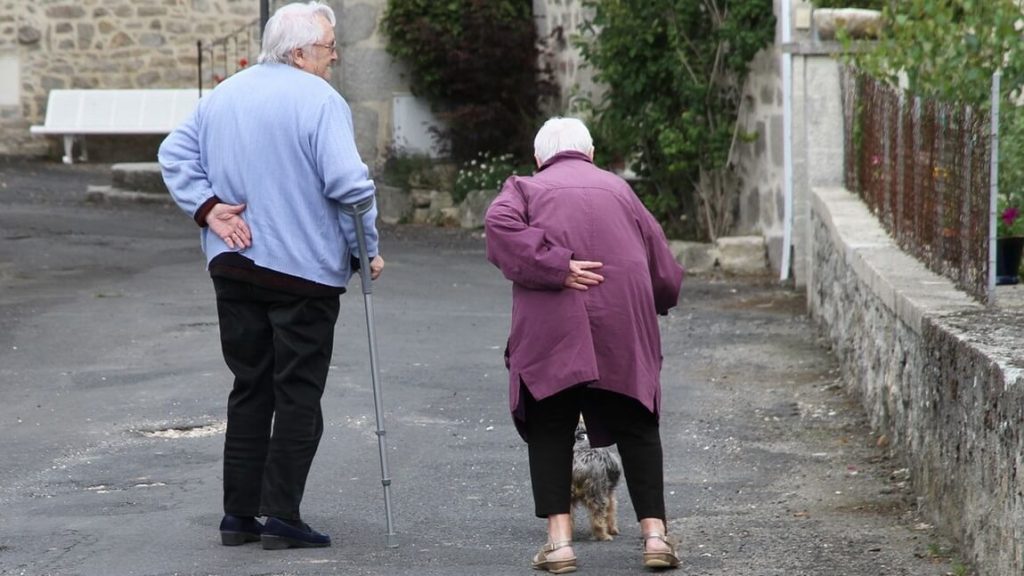Caring for older adults requires a holistic approach that includes addressing their personal care needs, accessing appropriate health services, and creating a safe and supportive living environment. As people age, they may require assistance with daily activities and personal care, making it essential to have the necessary support systems in place. Additionally, navigating healthcare can be challenging for older adults, and understanding the options available to them is crucial.

Understanding the Needs of Older Adults
Understanding the needs of older adults is the first step in providing effective care. Mental health plays a crucial role in the well-being of older adults, and it is important to address any emotional or cognitive challenges they may be facing. Engaging them in activities that promote mental stimulation, such as puzzles or social interactions, can greatly benefit their overall mental health.
Older adults may also require assistance with activities of daily living (ADLs), which include tasks such as bathing, dressing, grooming, using the toilet, eating, and moving around. Providing support in these areas can help older adults maintain their independence and dignity.
Elder care services, such as home health care and hospice care, are essential for older adults who have specific medical needs. Home health care services can provide assistance with medication management, wound care, and physical therapy. Hospice care focuses on providing comfort and support for individuals with a terminal illness and their families. Understanding the different types of elder care services available can help you make informed decisions about the care of your loved ones.
Creating a Safe Living Environment
Creating a safe living environment is crucial for the well-being of older adults. This involves ensuring that their physical surroundings are free from hazards and promoting their overall safety.
Home care services can play a vital role in creating a safe living environment for older adults. These services can include assistance with home modifications, such as installing grab bars in the bathroom or ramps for wheelchair accessibility. Home care providers can also help assess the safety of the home and recommend necessary changes to prevent accidents.
In addition to home modifications, the use of medical equipment can further enhance the safety of older adults. Items such as handrails, non-slip mats, and emergency alert systems can provide peace of mind and quick access to help in case of an emergency.
It is also essential to have emergency personnel contacts readily available in case of accidents or medical emergencies. Knowing who to call and having a plan in place can ensure that older adults receive timely and appropriate care when needed.
Navigating Healthcare for Older Adults
Navigating healthcare can be a complex process, especially for older adults. It is important to find the right health care providers and understand the various aspects of healthcare, such as medical care, health insurance forms, and doctor’s appointments.
Finding a trusted and reliable health care provider is essential for older adults. This can be done by seeking recommendations from friends, family, or primary care physicians. It is crucial to ensure that the health care provider has experience in geriatric care and understands the unique needs of older adults.
Understanding medical care options and procedures is also important when caring for older adults. This includes knowing when to seek medical attention, understanding medication management, and being aware of any specific medical conditions or concerns that may arise.
Health insurance forms can often be confusing, but it is crucial to understand them to ensure that older adults receive the necessary coverage for their medical needs. Familiarize yourself with the various forms and documentation required for health insurance claims and reimbursement.
Scheduling and attending doctor’s appointments is another aspect of healthcare that requires careful planning. It is helpful to maintain a record of appointments, medications, and any concerns or questions to discuss with the healthcare provider. This can ensure that older adults receive the necessary medical attention and have their questions addressed during these visits.
Nutritional Needs and Meal Preparation
Meeting the nutritional needs of older adults is essential for their overall health and well-being. As people age, their dietary requirements may change, and it is important to address these changes to ensure optimal nutrition.
Meal delivery programs can be a convenient option for older adults who may have difficulty preparing meals or accessing grocery stores. These programs provide nutritious meals that are tailored to meet the specific dietary needs of older adults. They can also offer options for special diets and handle dietary restrictions.
For older adults who are still able to cook, but may need assistance with grocery shopping, consider helping them with this task. Some grocery and drug stores offer services that allow orders to be taken over the phone or online, with the items delivered to the person’s home. Additionally, consider meal planning and preparation together, making it a shared activity that promotes social interaction and ensures that nutritional needs are met.
The Role of Technology in Elderly Care
Technology plays a significant role in elderly care, offering innovative solutions to provide support and enhance safety for older adults.
Electronic monitors and medical alert systems are valuable tools that can be used to ensure the well-being of older adults. These devices can detect emergencies, such as falls or health crises, and alert emergency personnel or designated caregivers. They provide older adults with a sense of security and enable quick response in case of an emergency.
Home health services can also utilize technology to enhance care for older adults. Telemedicine and remote monitoring allow healthcare providers to monitor vital signs and provide medical advice without the need for in-person visits. This can be particularly beneficial for older adults with chronic conditions who require regular monitoring and medical management.
Support Systems and Community Resources
Building a strong support system and utilizing community resources is essential when caring for older adults. There are various services and organizations that can provide assistance and support.
Community services, such as meal programs, transportation services, and senior centers, can offer valuable resources for older adults. These services can help meet basic needs, promote socialization, and provide opportunities for recreational activities and engagement.
Religious communities often offer support networks and resources for older adults. These communities may provide assistance with transportation, meal delivery, and companionship. Engaging with the religious community can help older adults feel connected and supported.
Local area agencies on aging can be valuable sources of information and support. These agencies can provide guidance on available resources and services in the community, as well as assistance with navigating the healthcare system and accessing financial aid programs.
Conclusion
Caring for older adults requires a holistic approach that considers their physical, emotional, and social needs. Creating a safe living environment, understanding their healthcare requirements, ensuring proper nutrition, and utilizing technology can significantly enhance their quality of life. Additionally, establishing strong support systems and tapping into community resources can provide essential aid and companionship. By implementing these essential tips, you can help older adults age gracefully and maintain their well-being.

Leave a Reply